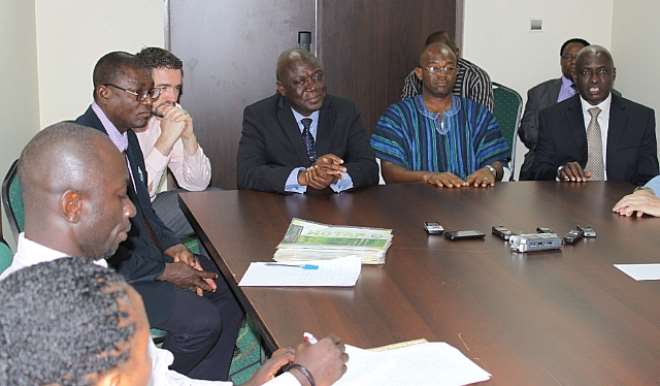
Dr. Ahmed Yakubu Alhassan, Deputy Minister for Food and Agriculture has advocated to governments in the West African sub-region to indigenise a legislative law on biotechnology.
He noted that it is appropriate to indigenise the biotechnology law within the ECOWAS region to ensure conformity and compliance.
Dr. Alhassan said however that due to lack of existence of the legislations in some ECOWAS countries, it is difficult to regionalise.
“In some of the countries the piece of legislation do not exist at all, in some they needed to review it and because we move on different speed and because of our different cultures, we have to have this pieces of legislation passed in the respective countries, before we can now talk about consolidation, he stated.
Dr. Alhassan was speaking at the sidelines of the PBR Cowpea Project Annual Review and Planning Meeting in Accra.
The event on the theme: “Towards Commercialization of PBR Cowpea” was organised by the African Agricultural Technology Foundation (AATF).
It was attended by participants by policy makers, national bio-safety committees, seed companies, scientists and the media from Ghana, Nigeria, Burkina Faso and Kenya.
Touching on food security, Dr. Alhassan said it is always necessary that, food security must be a concern to every policy manager.
According to him every policy manager has to answer the extent the frontiers of agriculture have reached during his tenure of office.
He expressed worry that the rich natural resources of Africa is no more sustainable and therefore it was appropriate that policy managers encourage the development of alternative ways in agriculture production to secure itself.
Dr. Alhassan said African agriculture needs technology, investments and marketing, expressing optimism that with these facilities well developed, Africa can be food sufficient.
For his part, Dr. Prince Addae project coordinator of the PBR Cowpea said the project is to introduce the resistant Bt trait into cowpea to control maruca cowpea.
He said the project made advances in product development by incorporating the Bt trait into farmers varieties in Nigeria by using backcrossing breeding methods.
Dr. Addae stated that breeders from Burkina Faso and Ghana are in different stages of incorporating the trait into their farmer’s varieties.
He restated “there is no infraction on Biosafety compliance because of the intensive training the partners undergo for appropriate handling of the transgenic materials in their target countries”.
Prof. Mahammad Ishyiaku, Principal Investigator, Ahmadu Bello University, Zaria, Kaduna State, Nigeria, added that demand for cowpea is high compared to supply.
He noted that the surest way to address the situation is for breeders to develop new varieties that can resist the maruca cowpea.
According to Prof. Ishyiaku, science has proven more than reliable, the biggest tool to promote cowpea production not only in Nigeria but in sub-Saharan Africa.
He therefore underscored the PBR Cowpea project as an opportunity to break the back of the maruca disease and remove the constraints for more affordable food production.
This article has 0 comment, leave your comment.

